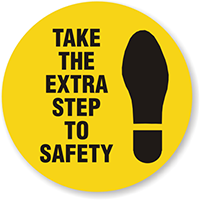Private Companies
BASIC BUSINESS LIABILITIES ON SAFETY & HEALTH
SECURITY TECHNICIAN
Under current legislation all companies which employ even one worker should have a technical security officer (Article 8 of the Workers ratified health laws and safety code by the first article of n.3850 / 2010.
A safety technician provides the employer suggestions and advice, in writing or orally, on topics related to health and safety at work and prevention of accidents. These written notes are recorded in a special register of the company, which has pages and is signed by the labor inspectorate. The employer is obliged to take note of the signed instructions recorded in this book.
OCCUPATIONAL PHYSICIAN
Businesses that employ 50 or more employees or those with even one employee if their work is related to lead, asbestos, biological agents, carcinogens (Presidential Decree. 94/87, Presidential Decree. 70a / 88 pd.186 / 95, Presidential Decree. 399/94) should have an occupational physician.
The occupational physician provides hints and tips to the employer, workers and their representatives, written or oral, relating to measures to be taken for the physical and mental health of workers. These written instructions are recorded in the special book of article 6 of Law 3850/2010. The employer becomes aware of the signed instructions recorded in this book.
OCCUPATIONAL RISK ASSESSMENT STUDY (ORAS)
All firms under Article 43 of the code of laws for the health and safety of workers, ratified by the first article of n.3850 / 2010, are required for the existence of a written assessment of occupational hazards. There its contents are defined. The employer is responsible for the pension, and carried out by the technical safety officer, the occupational doctor, or ESYPP EXYPP in accordance with the applicable provisions.
The ORAS includes:
- Identifing all sources of risks in all business activities.
- Identifing workers exposed to risk.
- Risk assessment.
- Determining the required risk reduction measures.
- Procedures, instructions and forms.
EMERGENCY RESPONSE PLAN NEEDS (ERPN)
The Emergency Situations Response Plan (SAEK or Draft) prepared by an undertaking or business to be a systematic program to prepare for emergency situations (fire, explosion, earthquake, etc.), which will protect human health and safety and the property of the Corporation.
This Plan also forms and relations of the undertakings by local authorities (Police, Fire Brigade, District, Hospitals etc.) in an emergency situation. A Copy, therefore, of the Scheme will be given to every employee of the facility, the local Police, the Fire Service, the Prefecture and PSEA of the region. The development of this Plan is part of the implementation of existing Health and Safety legislation (Presidential Decree. 77/81, 71/88, 105/95, 16/96).
Types of emergency incidents:
- Industrial Accident in a Great Area
- Accidents (vehicle or equipment)
- Fires or explosions
- Earthquakes
- Terrorist attacks
- Extreme weather events (storms, squalls, blizzards)
- Flooding

